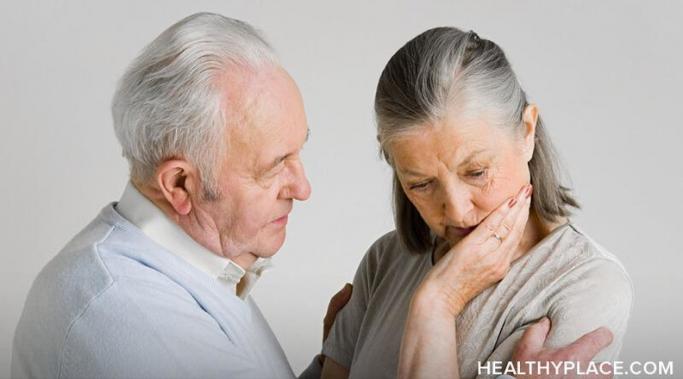Possibly the most important depression coping principle is "Know Thyself." You absolutely must know what triggers your depression and what helps you to relieve it. As a person with depression, knowing myself is essential to my continued well-being, and ignoring the "Know Thyself" depression coping principle could lead to the worst end
Depression Coping Skills
It is said that animals communicate through their energy. I’m no scientist, so I can’t really speak to the validity of that (Pet Therapy for Depression). What I do know for sure is that my dog is keenly aware of my depression and she knows just what to do when I’m suffering.
It takes a certain amount of energy to hide depression from family and close friends. (Explaining Depression to a Friend) It takes exponentially more energy to keep depression a secret at work. But there came a time, not too long ago, when I finally had to say – ENOUGH!
Exercise is one of the most important and effective treatments for depression. Knowing that exercise will help combat depression and actually getting out there to exercise are two completely different things.
There are many depression-management techniques available; antidepressant medication, cognitive behavioral therapy (CBT), exercise and a proper diet, relaxation and general wellness treatments (eg. massage therapy, hypnosis, meditation, aromatherapy, etc.), and so on. Among these therapy techniques is group therapy. But... group therapy for depression? Is it a help or a hindrance?
Explaining depression to a friend can be scary and difficult. A couple of weeks ago, I wrote about talking to somebody about depression. Telling family and close friends about your depression has its challenges, but telling friends and acquaintances can have its challenges too – especially when they are people you know from work.
Why would you even bother telling an acquaintance about your depression? What business is it of theirs? Good questions.
Talk about depression? Why? It’s no secret that the stigma of depression (and other mental illnesses) can be debilitating. Hiding the reason we are sick takes as much out of us as the sickness itself. Imagine a world where we could freely tell our loved ones, friends, co-workers and bosses the truth. Imagine a world where we could talk about depression.
Depression often leads to thoughts of suicide, or in the most dire of cases, taking one’s own life.
Around this time last year, in April of 2012, just as I was coming out of my last major depressive episode, I actually considered suicide. I didn’t just think about it, as in, “I wonder what would happen if I drive my car off this cliff,” but I actually contemplated a viable method and a plan to make it happen. Now, some people would think that the car/cliff thought was, in and of itself, a cry of desperation. For me, going that next step beyond pondering to planning, was the very lowest of all my very low moments.
When life's highs are followed by inexplicable lows, the clinically depressed person has the hardest of times.
As I mentioned in my About Me blog post, my battle with depression is ongoing. I lay in the trenches, at the ready for when my brain decides to ambush me with yet another volley of chemical scud missiles.
As a counselor, people often ask me if I am busy at Christmas and if a lot of people are depressed at the holidays. While I do see quite a few people have difficulty with December, I see so many more people struggle with Valentine’s Day. For them, the 14th of February is a reminder of what they don’t have. Single people talk about feeling more alone. Grieving people miss their significant others. And those in unhappy relationships feel the intimacy void more than ever. We had a conversation about this at the office today, and we decided, who SAYS it’s just for couples? We decided to redefine it in a way that works for us and thought we’d spread the love.








![Black Hole Image courtesy of [image creator name] / FreeDigitalPhotos.net](/sites/default/files/styles/blog_listing/public/uploads/2013/06/ID-10073348.jpg?itok=hYhc8ojB)
